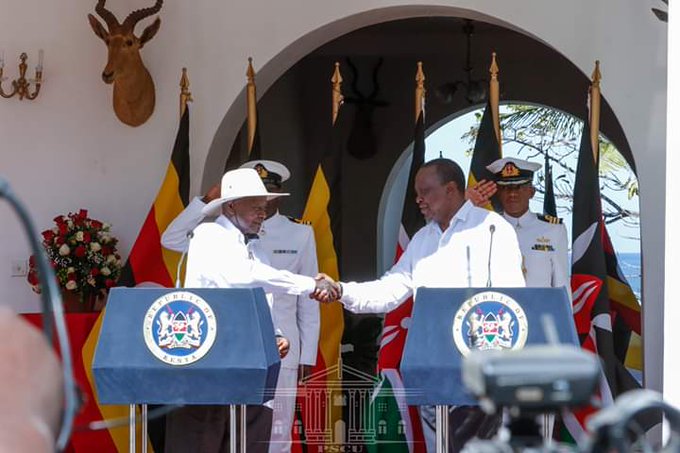The 2019 edition of the Africa Regional Integration Index (ARII) that was published recently has ranked the East African Community (EAC) as the most integrated bloc among the eight regional economic communities (RECs) recognized by the African Union.
The ARII is a composite index that assesses how countries and regional economic communities are making progress towards their integration agendas based on sixteen indicators, grouped into five dimensions. The ARII also measures the state of regional integration for the continent as a whole.
The eight RECs recognized by the AU are: the EAC, Arab Maghreb Union (AMU), Economic Community of Central African States (ECCAS), Inter-Governmental Authority on Development (IGAD), Economic Community of West African States (ECOWAS), Community of the Sahel-Saharan States (CEN-SAD), Common Market of Eastern and Southern Africa (COMESA), and; the Southern African Development Community (SADC).
The five dimensions are in respect to free movement of people; infrastructure integration; macroeconomic integration; productive integration, and; trade integration.
Based on these dimensions, the EAC was the highest scoring bloc on the continent, with an index score of 0.537, followed by AMU (0.488); ECCAS (0.442); IGAD (0.438); ECOWAS (0.425); the CEN-SAD (0.377); COMESA (0.367); and lastly SADC at 0.337.
“The EAC Secretariat is highly pleased with this evaluation,” said EAC Secretary General, Amb. Liberate Mfumukeko. “This is a clear indication that we are truly on course to the Community’s intended objective of transforming the region into a single market for all factors of production for enhanced welfare and economic prosperity of the people of East Africa,” he added.
Experts agree that regional integration expands markets and trade, enhances cooperation, mitigates risk, and fosters socio-cultural cooperation and regional stability. Regional integration has also been shown to maximize the benefits of globalization while countering its negative effects and to stimulate development in least-developed countries by improving productive capacity and encouraging investments in those pieces of infrastructure that hold the most economic potential.
The EAC scored 0.664 on the free movement of people indicator; the highest in the continent. This is largely attributed to the fact the EAC citizens are able to move freely within the region, albeit the requirement of valid travel documents. In addition, very few EAC Partner States require visa before arrival for non-citizens.
On macroeconomic integration, the EAC scored 0.660, also the highest in the region. The existing macroeconomic convergence criteria under the EAC Monetary Union and underlying conditions are said to have played a critical role.
In respect to infrastructure integration, the EAC region is also leading with an Index of 0.555, mainly on account of the various ongoing infrastructure projects especially in transport and energy to link Partner States for smooth flow of goods and power supply across the region.
On trade integration, though the EAC did not lead, it scored 0.440, performing better than the regional average of 0.382, while ranking least with a score of 0.434 in productive integration; again above the regional average of 0.201.
According to the report, regional integration holds tremendous promise for Africa. ARII’s role is therefore to provide the benchmarking and monitoring data that policymakers need to realize that promise.
As the EAC integration process continues with goals reached and targets achieved, the EAC remains optimistic on attaining higher scores on the next ARII edition.




